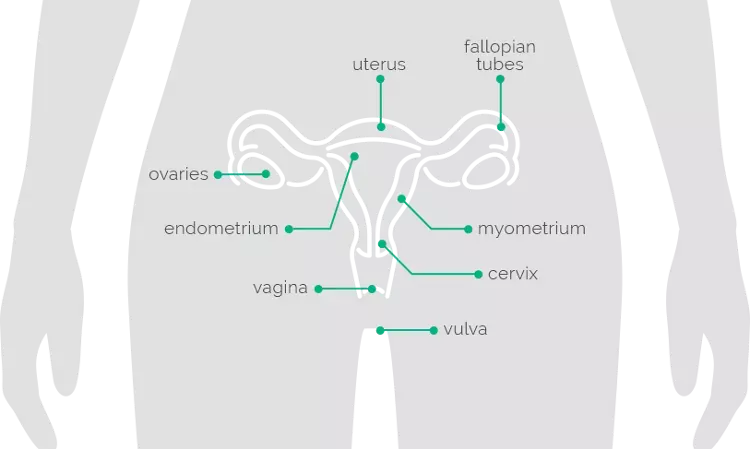- Home
- Medical news & Guidelines
- Anesthesiology
- Cardiology and CTVS
- Critical Care
- Dentistry
- Dermatology
- Diabetes and Endocrinology
- ENT
- Gastroenterology
- Medicine
- Nephrology
- Neurology
- Obstretics-Gynaecology
- Oncology
- Ophthalmology
- Orthopaedics
- Pediatrics-Neonatology
- Psychiatry
- Pulmonology
- Radiology
- Surgery
- Urology
- Laboratory Medicine
- Diet
- Nursing
- Paramedical
- Physiotherapy
- Health news
- Fact Check
- Bone Health Fact Check
- Brain Health Fact Check
- Cancer Related Fact Check
- Child Care Fact Check
- Dental and oral health fact check
- Diabetes and metabolic health fact check
- Diet and Nutrition Fact Check
- Eye and ENT Care Fact Check
- Fitness fact check
- Gut health fact check
- Heart health fact check
- Kidney health fact check
- Medical education fact check
- Men's health fact check
- Respiratory fact check
- Skin and hair care fact check
- Vaccine and Immunization fact check
- Women's health fact check
- AYUSH
- State News
- Andaman and Nicobar Islands
- Andhra Pradesh
- Arunachal Pradesh
- Assam
- Bihar
- Chandigarh
- Chattisgarh
- Dadra and Nagar Haveli
- Daman and Diu
- Delhi
- Goa
- Gujarat
- Haryana
- Himachal Pradesh
- Jammu & Kashmir
- Jharkhand
- Karnataka
- Kerala
- Ladakh
- Lakshadweep
- Madhya Pradesh
- Maharashtra
- Manipur
- Meghalaya
- Mizoram
- Nagaland
- Odisha
- Puducherry
- Punjab
- Rajasthan
- Sikkim
- Tamil Nadu
- Telangana
- Tripura
- Uttar Pradesh
- Uttrakhand
- West Bengal
- Medical Education
- Industry
Proton pump inhibitor use linked to lower risk for female cancers

Proton pump inhibitor use linked to lower risk for female cancers suggests a recent study published in the Cancers.
Firm conclusions about whether long-term proton pump inhibitor (PPI) drug use impacts female cancer risk remain controversial.
The researchers aimed to investigate the associations between PPI use and female cancer risks in the instant study.
A nationwide population-based, nested case-control study was conducted within Taiwan's Health and Welfare Data Science Center's databases (2000-2016) and linked to pathologically confirmed cancer data from the Taiwan Cancer Registry (1979-2016). Individuals without any cancer diagnosis during the 17 years of the study served as controls. Case and control patients were matched 1:4 based on age, gender, and visit date. Conditional logistic regression with 95% confidence intervals (CIs) was applied to investigate the association between PPI exposure and female cancer risks by adjusting for potential confounders such as the Charlson comorbidity index and medication usage (metformin, aspirin, and statins).
Results:
A total of 233,173 female cancer cases were identified, consisting of 135,437 diagnosed with breast cancer, 64,382 with cervical cancer, 19,580 with endometrial cancer, and 13,774 with ovarian cancer.
After matching each case with four controls, we included 932,692 control female patients. The number of controls for patients with breast cancer, cervical cancer, endometrial cancer, and ovarian cancer was 541,748, 257,528, 78,320, and 55,096, respectively.
The use of PPIs was significantly associated with reduced risk of breast cancer and ovarian cancer in groups aged 20-39 years and 40-64 years
PPI exposure was associated with a significant decrease in cervical and endometrial cancer risks in the group aged 40-64 years
In contrast, in elderly women, PPI use was found to be insignificantly associated with female cancers among users.
The findings, based on real-world big data, can depict a comprehensive overview of PPI usage and female cancer risk. Further clinical studies are needed to elucidate the effects of PPIs on female cancers.
Reference:
Nguyen NTH, Huang CW, Wang CH, Lin MC, Hsu JC, Hsu MH, Iqbal U, Nguyen PA, Yang HC. Association between Proton Pump Inhibitor Use and the Risk of Female Cancers: A Nested Case-Control Study of 23 Million Individuals. Cancers (Basel). 2022 Dec 10;14(24):6083. doi: 10.3390/cancers14246083. PMID: 36551573; PMCID: PMC9776228.
Dr. Shravani Dali has completed her BDS from Pravara institute of medical sciences, loni. Following which she extensively worked in the healthcare sector for 2+ years. She has been actively involved in writing blogs in field of health and wellness. Currently she is pursuing her Masters of public health-health administration from Tata institute of social sciences. She can be contacted at editorial@medicaldialogues.in.
Dr Kamal Kant Kohli-MBBS, DTCD- a chest specialist with more than 30 years of practice and a flair for writing clinical articles, Dr Kamal Kant Kohli joined Medical Dialogues as a Chief Editor of Medical News. Besides writing articles, as an editor, he proofreads and verifies all the medical content published on Medical Dialogues including those coming from journals, studies,medical conferences,guidelines etc. Email: drkohli@medicaldialogues.in. Contact no. 011-43720751


